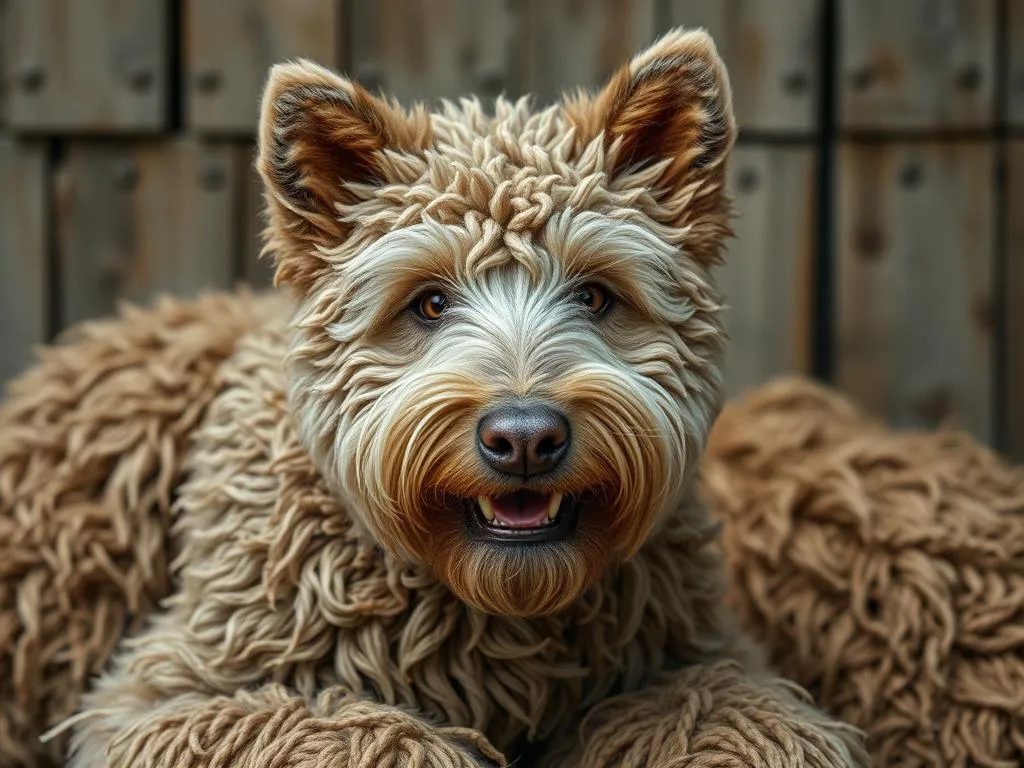
Introduction
Understanding different dog breeds is crucial for potential pet owners. Each breed comes with its unique characteristics, needs, and temperament. Among the most fascinating categories are mixed breeds and designer dogs, which are bred for specific traits and temperaments. One such delightful breed is the Bordoodle, a charming hybrid of the Border Collie and the Poodle.
The Bordoodle is not just a random blend of two breeds; it embodies the best traits of both its parent breeds. In this article, we will delve into the characteristics, care, training, health considerations, and everything else you need to know about this lovable designer dog.
Understanding the Bordoodle
What is a Bordoodle?
The Bordoodle is a hybrid dog that combines the intelligence and agility of the Border Collie with the affectionate and hypoallergenic qualities of the Poodle. This breed is recognized for its friendly disposition and versatility, making it a popular choice for families and individuals alike.
The Bordoodle can vary in size and appearance, depending on whether it is more closely related to the Poodle or the Border Collie. Generally, they are known for their intelligence, making them easy to train and a joy to have as companions.
Appearance
When it comes to appearance, Bordoodles can vary greatly. Here are some key features:
-
Size and Weight: Bordoodles typically range from medium to large, weighing between 30 to 65 pounds. The size can depend on whether the Poodle parent was a standard, miniature, or toy.
-
Coat Types and Colors: The coat can be wavy or curly and is usually low-shedding, making them a good choice for allergy sufferers. Common colors include black, white, brown, and combinations such as merle or brindle.
-
Distinctive Features: They often have a well-defined snout, expressive eyes, and floppy ears, with an overall athletic build that showcases their agility and energy.
Temperament
The temperament of a Bordoodle is one of its most appealing traits. Here’s what you can typically expect:
-
General Personality Traits: Bordoodles are known for their friendly, intelligent, and playful nature. They are eager to please, which makes training a rewarding experience.
-
Social Behavior with Children and Other Pets: They tend to get along well with children and other pets, making them excellent family dogs. Their playful demeanor allows them to engage in fun activities with kids.
-
Energy Level and Playfulness: High energy levels are common in Bordoodles. They thrive on physical activities and mental stimulation, making regular exercise essential for their well-being.
Bordoodle Care
Grooming Needs
Proper grooming is vital to maintain a Bordoodle’s health and appearance:
-
Coat Maintenance: Depending on the coat type, brushing may be required anywhere from two to four times a week. Regular bathing is recommended every four to six weeks, and professional grooming may be necessary every few months.
-
Common Grooming Challenges: Due to their unique coat, Bordoodles can be prone to matting, especially if they have a curlier Poodle-like coat. Regular brushing can help mitigate this issue.
Exercise Requirements
A Bordoodle needs ample exercise to stay happy and healthy:
-
Recommended Daily Exercise: Aim for at least 60 minutes of exercise per day. This can include walks, playtime, and interactive games.
-
Types of Activities Suitable for Bordoodles: Activities like fetch, agility training, and swimming are excellent ways to keep your Bordoodle engaged and physically fit.
Diet and Nutrition
Feeding your Bordoodle a proper diet is crucial for their health:
-
Nutritional Needs Based on Age and Size: Puppies require a diet high in protein and fat for growth, while adult Bordoodles need a balanced diet rich in nutrients.
-
Recommended Food Types and Brands: High-quality kibble formulated for medium to large breeds is ideal. Brands like Blue Buffalo, Wellness, and Royal Canin offer great options.
Training the Bordoodle
Basic Training Techniques
Training a Bordoodle can be a rewarding experience:
-
Importance of Early Socialization: Introduce your Bordoodle to various environments, people, and pets at an early age to help them develop into well-rounded adults.
-
Recommended Training Methods: Positive reinforcement works wonders with Bordoodles. Techniques like clicker training can be effective in teaching commands and tricks.
Advanced Training and Skills
A Bordoodle is capable of learning various skills:
-
Potential for Agility and Obedience Training: Given their intelligence and agility, Bordoodles excel in agility courses, obedience trials, and even therapy work.
-
Tricks and Commands Bordoodles Can Learn: With consistent training, a Bordoodle can learn a variety of commands and tricks, from basic sit and stay to more complex agility skills.
Common Behavioral Issues
Like any breed, Bordoodles can encounter behavioral challenges:
-
Overview of Potential Behavioral Challenges: Common issues may include chewing, barking, or separation anxiety if left alone for long periods.
-
Solutions and Tips for Managing These Issues: Establishing a routine, providing mental stimulation, and ensuring regular exercise can help curb these problems effectively.
Health Considerations
Common Health Issues
Being aware of health issues is crucial for Bordoodle owners:
-
Genetic Predispositions from Parent Breeds: Bordoodles can be prone to certain genetic conditions inherited from their parent breeds, including hip dysplasia, eye disorders, and certain skin conditions.
-
Regular Health Screenings Recommended: Regular veterinary check-ups and screenings can help detect potential health issues early on.
Lifespan and Aging
Understanding the lifespan of your Bordoodle is essential:
-
Average Lifespan of Bordoodles: Typically, Bordoodles live between 12 to 16 years, depending on their health and care.
-
Care Considerations for Aging Dogs: As they age, their exercise needs may decrease, and they may require a diet that supports joint health.
Preventative Care
Preventative care is key to maintaining a Bordoodle’s health:
-
Vaccination Schedule: Keeping up with the vaccination schedule is essential to protect against common canine diseases.
-
Importance of Regular Vet Visits: Regular check-ups can help monitor your Bordoodle’s health and catch any potential issues early.
Finding a Bordoodle
Adoption vs. Breeder
Deciding whether to adopt or purchase a Bordoodle is a significant choice:
-
Pros and Cons of Adopting a Bordoodle from a Shelter: Adoption can save a life and is often less expensive. However, it’s important to research the dog’s background and health.
-
What to Look for in a Responsible Breeder: If you choose to buy from a breeder, ensure they are reputable, conduct health screenings, and allow you to meet the puppies’ parents.
Cost of Owning a Bordoodle
Understanding the financial commitment involved in owning a Bordoodle is crucial:
-
Initial Purchase/Adoption Fees: Adoption fees can range from $50 to $300, while purchasing from a breeder may cost between $1,000 to $3,000.
-
Ongoing Costs: Consider ongoing costs such as food, grooming (which can range from $50 to $100 per session), and veterinary care, which can vary based on location and health needs.
Conclusion
In summary, the Bordoodle is a delightful breed that combines the best traits of the Border Collie and Poodle. Their intelligence, friendly temperament, and versatility make them an excellent choice for families and active individuals. However, prospective owners should carefully consider their lifestyle and needs before bringing a Bordoodle into their home.
Whether you choose to adopt or purchase, understanding the care, training, and health needs of a Bordoodle will ensure a happy and fulfilling companionship for years to come.
By engaging in proper training, regular exercise, and preventative health care, you will help your Bordoodle thrive and become a beloved member of your family.









